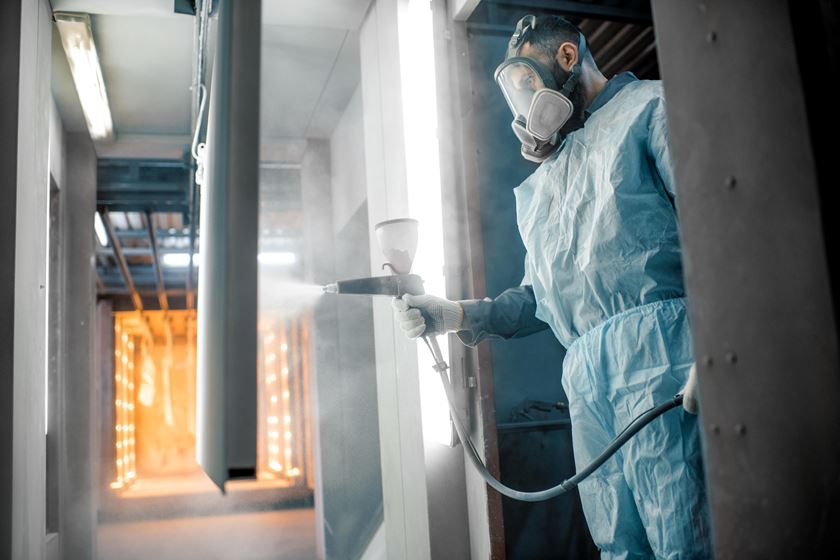Cleaning Spray Can Nozzles
I use a lot of spray cans and remedied it rather simply. I have never had a stoppage since doing this and it saves the mess of cleaning up or turning the can upside down and wasting its contents.
Q. Carl, I too had the problems with spray cans as everyone does. I use a lot of them and remedied it rather simply. I took a 35 mm film container and filled it one half full with lacquer thinner and after every can use I pull the nozzle off and drop it into the container, which will hold several, cap it and wait till the next time I need a nozzle. Color makes no difference. I use one for each brand name paint and tape the brand on the outside of the container as some nozzles are different. I have never had a stoppage since doing this and it saves the mess of cleaning up or turning the can upside down and wasting its contents. J. M.
Featured Content
A.That’s a great spray can nozzle cleaning solution, J. M. Fortunately, small glass bottles will work as well., because metal 35mm film containers are going the way of buggy whips. The last ones I got were made of plastic and may be soluble in lacquer thinner. With the advent of digital cameras even the plastic containers will become scarce.
This is in response to the November 2006, Painting Clinic question, where R. C. was having problems with clogged spray can nozzles. I answered his question by relating my experiences. I told him that although spray cans are really great, they all suffer from the same malady—nozzle clog. After I suffered “spray can nozzle clog,” I got smart and started clearing the nozzle after each use. I simply turned the can upside down and depressed the nozzle to clear it allowing a little of the propellant to pass through. I also wipe the area around the orifice after clearing it. For good measure I keep a short length of small diameter wire handy to poke into and clear the orifice if necessary.
Thank you, J. M., for sharing your solution to the spray can nozzle clogging problem with us. The Painting Clinic always welcomes alternative solutions to problems. I feel cheated if I don’t learn something new everyday.
RELATED CONTENT
-
Masking for Surface Finishing
Masking is employed in most any metal finishing operation where only a specifically defined area of the surface of a part must be exposed to a process. Conversely, masking may be employed on a surface where treatment is either not required or must be avoided. This article covers the many aspects of masking for metal finishing, including applications, methods and the various types of masking employed.
-
Preventing Solvent Pop
Preventing solvent pop on an industrial paint line...
-
Phosphate Conversion Coatings
Types of phosphate conversion coatings, how to apply them, and their specific functions.


















